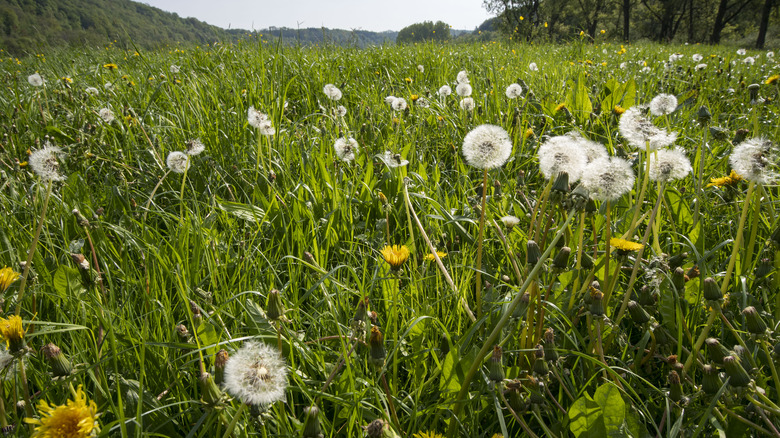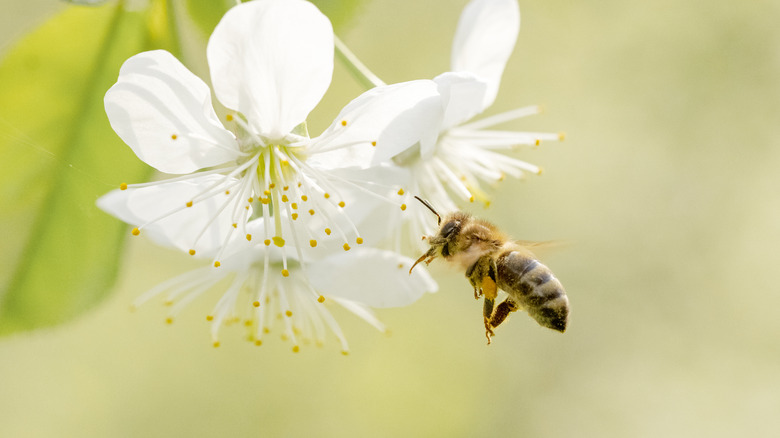No Mow May: What Is It And Should You Participate?
The No Mow May idea started in the United Kingdom in 2019 and has been gaining traction in the United States recently. The movement promotes waiting until June to begin mowing your lawn, which, in theory, will give important pollinators, like bees and butterflies, time to find food after emerging from hibernation. While this seems like a lovely way to help the bees, promote biodiversity, and be more environmentally cautious, providing a temporary food source for a month and then reverting to a trimmed, manicured lawn might hurt bees long term.
The memory of a bee is not short-term, and when they find a good source of food, they will continue to return, bringing more bees with them. Once the food disappears, the bees will be in a vulnerable position. Tamson Yeh, a turf specialist with the Cornell Cooperative Extension of Suffolk County, told Associated Press, "I think it's a terrible idea... It's such a nice slogan, but letting the grass grow high and allowing it to do its thing, and then suddenly mowing it back is really counterproductive."
Best way to help pollinators instead of No Mow May
Rather than abstaining from mowing for a short period of time, it's more beneficial to set up an area of your yard dedicated to bees. By growing plants native to your area and having something in bloom all season, you can create a healthy habitat for bees and other pollinators that will provide food and shelter throughout the summer. Keeping these pollen and nectar-filled plants in groups rather than spread throughout your lawn will give these crucial insects and birds an oasis to search for food. You can also provide them with a source of water, like a bird bath. You can add small rocks or pebbles to the bird bath so the bees have a spot to safely land when they need a drink. It's also a good idea to keep chemicals off your lawn, as they can kill beneficial plants and insects.
Native plants vary depending on the area, but growing things like milkweed, which is the only food source for the now-endangered monarch caterpillar, and plants with nectar, will benefit pollinators. While participating in No Mow May is not the best way to help bees, it's important to continue finding ways to support biodiversity and the bugs that help grow our food.

